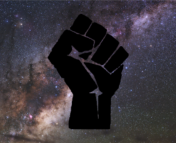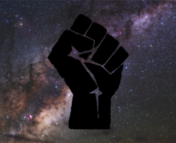After the phenomenal success of the first #BlackInPhysics week, we had a chat with the lead organisers to find out how the initiative came about, learn about some of the week’s activities, and what their hopes and plans for the future are.
Meet the lead organisers…
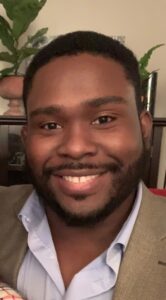
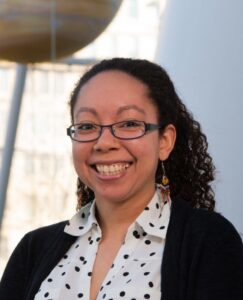
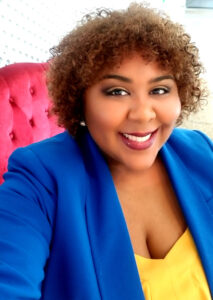
#BlackInPhysics came about from a growing movement of events celebrating Black scientists. In May this year Christian Cooper, a Black birdwatcher, was harassed while wildlife watching in Central Park, an incident that was far too familiar to other Black nature enthusiasts. From this negative experience, birders around the world worked to create a positive response and #BlackBirdersWeek was born. The week celebrated Black scientists and nature lovers, and sparked a series of events in other disciplines celebrating Black scientists in all their diversity — such as #BlackInAstro, which we participated in here at Astrobites . The organisers of #BlackInPhysics Week wanted to create something “to really put a spotlight on the fact that Black people are represented in many different fields and that we’re not a monolith”, says Charles. For Jessica, her feelings of hopelessness led her to take action and create this positive space: “Being able to collectively organize with physicists that look like me to create a space where we can build community across the physics landscape, whether or not you’re the only person in your department, collectively coming together to find our voice and and raise it — that was really important for me”.
#BlackInPhysics week was an online event somewhere between a conference and a festival, for Black physicists and non-Black allies to come together and build a community celebrating the multi-faceted identities of Black physicists. It featured professional events, covering topics from how to be a successful student to remaining confident on the path to tenure, as well as a vibrant social schedule. The week was a huge success: “We had tons of engagement on Twitter — I even had someone say that they found about our week from Google News! K-12 students came to our ask-a-scientist” says Eileen. “It was really powerful. At the job fair someone had left a comment saying, ‘this was amazing, I wish I had this when I was a grad student in the 90s’. Hearing that multiple times from various people, knowing that they’ve already gone through it as a student and that it’s making a difference for them right now — it’s making a difference for current students too, this is a community that they now have”.
If Charles were to sum up the feeling of the week in one word, “I would say triumphant… One thing that’s really important to all of us is the community building aspect of what we’ve accomplished. Coupling professional events with social events, people can start forming actual bonds and friendships, so we’ve really aided in the creation of community. It was a triumphant week.”
One of the American Institute of Physics “TEAM-UP” project’s 5 key findings was that ‘Fostering a sense of belonging is essential for African American student persistence and success.’
“Developing community aids in one’s sense of belonging. Take a sophomore undergraduate at X University — they go on Twitter and see, oh it’s high energy physics day, and they are all these Black particle physicists… they realize that it’s not just them. That they have a substantial stake in the physics discipline globally, that they are part of something much bigger. And they’re part of something that matters” says Charles. “Community building provides an anchor that gives you a foundation and a strong sense of belonging in your craft or in the discipline.”
There’s another aspect of community building that is important to Charles – “[it] meant more than simply the community of Black physicists… Having this sort of initiative where we can build community with non-scientists, to bring them into the fold and give them an opportunity to talk with us, to learn that we are trustworthy, normal people that love science –that is super important.”
For Jessica, community allows people to make their voices heard: “This idea of separation and feeling alone perpetuates us not belonging, perpetuates us feeling like we’re imposters, and perpetuates pushing us out. As we build community we find our voice and we start pushing on that system, and we realize that that system has been the reason why we’re not here. We realize that once we’re together, we have power to change it.”
A very crucial aspect of the week to the organisers was that their speakers were paid an honorarium for their contributions. “One of our goals was to show that you can value this work. Not value just in words, but put your money where your mouth is” says Jessica. “It was a top priority that we’re not asking these people within our community to talk about all of the trauma that they’ve gone through for free. You can’t say that you value this work and not pay these folks!”
Which events stood out to the organisers from the week?
For Eileen, it was hard to choose any one event, but the industry panel was “Amazing! It was focused on agency, and how you can ask difficult questions about diversity and inclusion, and climate at an institution, and it was so useful.” She also highlighted the panel on mental health — “It came at a time when it was so needed. It was so useful to have a mental health expert on the panel, so you could get the perspective from physicists but also from a mental health expert who is Black… bridging it together to our community.”
Jessica says, “I’m a huge halloween buff, so my favourite event had to be the murder mystery party. It was just so heartwarming to see joy, plain and simple, just us having fun”.
For Charles, the three minute thesis competition stood out: “We provided a platform for graduate students to describe their research in a very concise and engaging way… We had some really incredible speakers really blowing our minds talking about their research”.
The week was a massive success, but what next? Eileen talks about their long term plans to create a database of Black physicists — not simply contact info, but with examples of their work, such as media resources that others can use. “Instead of asking the same people [repeatedly] — because the same Black physicists are always asked to do work — we can reduce this and not have the same people being bombarded with emails and requests. All of this is out there. We’re going to provide this as a way for other people to reach out and collect this information.”
Jessica wants to normalise valuing this kind of work financially. “My goal is to become an organization where Black physicists can reach out to us and say, ‘I have this opportunity to be on a panel at X, but they don’t have any funding. Can I get an honorarium?’ And really support the work that we are doing in the field to transform it.” A shift in academic culture to really value this kind of work is much needed: “When you look at our white counterparts, they’re not doing as much as we’re doing. They’re not holding the door open when it wants to slam shut for folks like us to come through. We’re doing that, we’re keeping that door open. We’re making sure that we’re represented in these spaces. And showing that you, the little Black [child] that really is interested in STEM can do it. We need to be valuing that work and giving money to those folks to build out whatever innovative idea that they have to increase representation and retention in our field.”
For Charles, part of the success of #BlackInPhysics is that they put on events that you wouldn’t find at your average conference: “Take our ask-a-scientist event, where we had this opportunity for the general public to come and talk to physicists. This is incredible for multiple reasons — one because it can be hard for non-scientists to have direct access to physicists this way, but it also put a really large spotlight on Black physicists. Visibility is important because this allows us to put out these images of scientists for younger people to aspire to be like — that could be other Black people, that could be younger non-Black people. It should totally be the case that young white kids should be seeing older Black scientists and say, wow, I want to be like that person one day. Those are the kind of things that I’m really excited for in the future.”
So what should our take-away be from this #BlackInPhysics week?
Jessica says, “Science needs us. We’re trying to answer questions that are on the bleeding edge of our knowledge. And as you saw in #BlackinPhysics week, we are innovative, and we are creative, and we think outside the box and we push norms. We don’t need y’all. Y’all need us!”
Charles reminds us that there is a very long history of Black people’s contributions to science and society, in many varied and impactful ways, and that these will continue in future. And that for Black students out there who might feel alone — “there are many more of you out there, and with a little bit of work, you can find each other, you can find that you belong in physics”.
“Find us and reach out to us. You are definitely not alone.” says Eileen.
Things to look out for:
You can find out more @BlackinPhysics on Twitter, or on their website blackinphysics.org. Recordings of the webinars will appear on YouTube soon!
Twitter is a powerful tool to connect with other physicists and take part in events like those held in #BlackInPhysics week! Check out the hashtags #BlackInPhysics, #BlackInSTEM, #BlackInTheIvory #BlackInAstro and many other BlackInSTEM collectives for more connections, as well as our own posts here on Astrobites tagged #BlackInAstro — our cornerstone post can be found here.
The NSBP (@NSBPInc) conference is next week — and while registration is now closed, you can also follow along on twitter with the #NSBP2020 hashtag and check the NSBP’s website here.
And of course, #BlackInPhysics will be back in future years!
“Beyond astro-ph” articles are not necessarily intended to be representative of the views of the entire Astrobites collaboration, nor do they represent the views of the AAS or all astronomers. While AAS supports Astrobites, Astrobites is editorially independent and content that appears on Astrobites is not reviewed or approved by the AAS.
Astrobite edited by: Luna Zagorac

